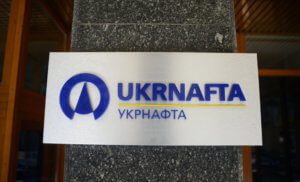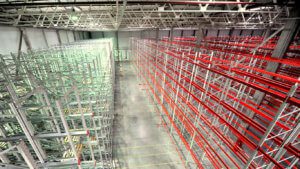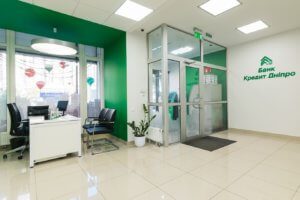
PJSC Citibank (Kyiv) in January-June 2018 received a net profit of UAH 627.989 million, which is 4.9% more than for the same period in 2017 (UAH 598.313 million).
According to the bank’s quarterly financial report, net interest income for the six months was UAH 657.974 million, which is 5.3% more than for the corresponding period of 2017 (UAH 625.030 million).
Excluding expenses for the formation of reserves, net interest income was UAH 683.345 million, which is 10.8% more than for the corresponding period of the previous year (UAH 616.736 million).
In addition, the bank posted a commission income of UAH 89.948 million (an increase of 86.5% over the same period in 2017).
The assets of the bank for the six months rose by 5.8%, to UAH 20.119 billion, in particular loans and customers’ debts decreased by 7.9%, to UAH 5.104 billion.
Charter capital by the end of June 2018 remained at the same level, at UAH 200 million, while net worth rose by 35.4%, to UAH 2.490 billion.
Citibank was founded in 1998. It is a subsidiary of Citibank NA (the United States).

Ukrnafta saw net profit rise by 54.3% in January-June 2018 compared to the same period in 2017, to UAH 2.061 billion.
According to a company report in the information disclosure system of the National Commission on Securities and the Stock Market, its net income grew by 21.6%, to UAH 16.762 billion, gross profit by 40.8%, to UAH 9.675 billion.
In January-June 2018 Ukrnafta sold 712,800 tonnes of oil with gas condensate for UAH 9.398 billion, 117.8 million cubic meters of natural gas for UAH 889.635 million, 174,200 tonnes of fertilizers and nitrogen compounds for UAH 831.937 million, 53,000 tonnes of liquefied gas for UAH 639.321 million.
Ukrnafta has not indicated data on the sales of petroleum products for the first half of the year.
Naftogaz Ukrainy owns a 50% plus one share stake of Ukrnafta, the former shareholders of PrivatBank (Kyiv) hold about 42% of the shares.

The European Bank for Reconstruction and Development (EBRD) is providing a seven-year loan of $15 million to a major manufacturer and supplier of fixtures and equipment for retail stores and warehouses – Modern Expo Group, the bank reported on Friday. The proceeds will be used to increase production volumes at the two principal manufacturing sites in Lutsk (Ukraine) and in Vitebsk (Belarus). The company will also be able to restructure its balance sheet.
Modern-Expo is a privately owned company, which has been operating in Ukraine for over 20 years and expanded to Belarus in 2014. It is one of the largest manufacturers and suppliers of fixtures and equipment for retail stores and warehouses in central and Eastern Europe.
The main plant with an area of over 65,000 square meters and the Ukrainian office are located in Lutsk. In 2013, the group launched production in Verkhniodniprovsk (Dnipropetrovsk region) with an area of 22,000 square meters. In 2017, RED POS equipment manufacturer (Lviv) joined the group.
Around 65% of company revenues are generated from export sales to more than 60 countries around the world. It supplies its products to major international retailers including Auchan, Carrefour, Billa, Nestle and many others.
The EBRD is the largest international financial investor in Ukraine. To date, the bank has made a cumulative commitment of almost EUR 12.1 billion across some 400 projects since the start of its operations in the country in 1993.
Since the start of its operations in Belarus in 1992, the EBRD has invested over EUR 2 billion in 95 projects in various sectors of the country’s economy.

Goods flow in marketplaces of the EVO Group in Ukraine (Prom.ua, Bigl.ua, Crafta.ua, Shafa.ua) in January-June 2018 totaled UAH 10 billion, which is 52% more than a year ago, the company’s press service has told. The average bill – UAH 893 – almost did not change in a year.
According to Prom.ua and Bigl.ua marketplaces, the greatest demand among online purchases is on clothing and footwear, appliances and electronics, cosmetics, perfumes, as well as books, hobby goods and gifts (table games, balloon bouquets, handicraft articles and other things). “The highest number of orders for goods for business and day-to-day items – they grew by 70% compared with the first half of 2017. Household chemistry, pet goods, office items were traditionally bought in convenient stores, now they are bought online. The same thing is with goods for business: instead of finding suppliers at exhibitions, they look for construction equipment, clothing, systems for video surveillance, fire alarms and other items online,” Prom.ua CEO Ivan Portnoi said.
According to EVO, in six months on Shafa.ua Ukrainians bought outfits for UAH 169 million (for comparison, for the whole of 2017 – UAH 212 million).
“Interest in second-hand items is growing for two reasons. The first thing is that to buy used things online is beneficial: on average, one thing in the Shafa marketplace costs UAH 240 for customers, and this is often the brand thing in perfect condition. In addition, conscious consumption is developing in the country,” Shafa.ua CEO Oleksandr Royenko said.
The main business of EVO is marketplaces. The projects of the group are working in Ukraine, Belarus, Russia and Kazakhstan.

Net profit of Bank Credit Dnepr (Kyiv) in January-June 2018 totaled UAH 40.251 million, the bank has said in a press release.
“The profit of Bank Credit Dnepr in April-June 2018 totaled UAH 157.175 million, and in H1 2018 the bank saw UAH 40.251 million in profit,” the bank said.
Net interest income in January-June 2018 grew by 33.2% year-over-year, to UAH 85.181 million. Net commission fee grew by 28%, to UAH 64.782 million.
Net worth in H1 2018 rose by 2.4%, to UAH 838.281 million. Assets totaled UAH 9.078 billion. Funds of clients accounted for UAH 8.183 billion.
Bank Credit Dnepr was founded in 1993. Its only owner is Victor Pinchuk.
The bank ranked 21st among 84 operating banks in the country as of June 1, 2018 in terms of total assets (UAH 9.439 billion), according to the National Bank of Ukraine.

Kyiv Sikorsky International Airport (Zhuliany) in January-July 2018 serviced around 1.5 million passengers, according to a posting on the official Facebook page of the airport. “On August 1, 2018, the airport serviced a 1.5 millionth passenger since the beginning of the year. The figure is indicative. It indicates the rapid and confident development of the airport. In August 2017, Hlib Deineha became the millionth passenger, he was then 3.5 years old,” the airport said.
In July, the airport serviced 351,000 passengers, which is 59.4% more than in July 2017; including 342,200 on international flights and 8,800 passengers on domestic flights. The number of flights in July 2018 was 3,328 for the arrival and departure, which is 34.1% more than the same period in 2017; of which 2,874 international flights and 454 domestic flights. The most popular international destinations in July 2018 were Antalya (Turkey), Sharm-El-Sheikh (Egypt), Minsk (Belarus), Warsaw (Poland), Ankara (Turkey), Batumi (Georgia), Tivat (Montenegro); internal – Odesa, Zaporizhia and Lviv.
In January-July 2018, the Kyiv airport serviced 1.5 million passengers, which is 64.8% more than in January-July 2017; of them 1.45 million passengers on international flights and 49,500 passengers on domestic flights.
The number of flights in January-July 2018 amounted to 16,834 for the arrival and departure, which is 38% more than the same period of 2017, of them 14,182 international flights and 2,652 domestic flights. The most popular international destinations since the beginning of 2018 have been Minsk (Belarus), Dubai (UAE), Antalya (Turkey), Ankara (Turkey), Warsaw (Poland), Rome (Italy), Budapest (Hungary); internal – Odesa, Zaporizhia and Lviv.
The press service said that the airport plans to service 2.8 million passengers by the end of 2018.
Kyiv International Airport (Zhuliany) is located in the business center of the capital, seven km from the city center. It is the second largest airport in Ukraine in terms of the number of flights and passenger traffic. The airport has three terminals with a total area is 21,000 square meters. Terminal B is separate facility for business-class service, it is part of the Fixed Base Operator (FBO) system. The airport’s runway is able to handle B-737 and A-320 aircraft. In Q1 2018, the airport serviced 442,000 passengers, which is 50.4% more than in Q1 2017.